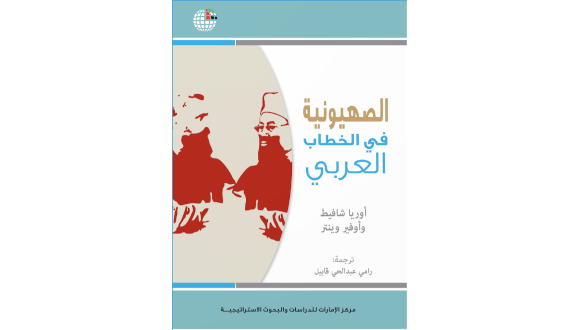Book by TAU researchers published in Abu Dhabi

First UAE publication of book by Israeli scholars since signing of Abraham Accords
Support Tel Aviv UniversityFor the first time since the signing of the Abraham Accords, an Israeli research book has been published in Abu Dhabi, capital of the United Arab Emirates (UAE).
The UAE’s largest public research institute, the Emirates Center for Strategic Studies and Research, has published Zionism in Arab Discourse by Professor Uriya Shavit, Head of the Religious Studies Program and the Kantor Center for the Study of Contemporary European Jewry, both at the Entin Faculty of Humanities at Tel Aviv University (TAU), and Dr. Ofir Winter, a researcher at the Institute for National Security Studies. Translated into Arabic at the initiative of Egyptian Rami Abd el-Hai Kabil, this is the first Hebrew research book ever published in the UAE.
First published in Hebrew in 2013 by HaKibbutz HaMeuchad Publishing House and in English in 2016 by the Manchester University Press, the book has aroused considerable interest. Its main thesis is that, alongside animosity towards Zionism and Israel, quite a number of Arab thinkers since the end of the 19th century, including members of the Muslim Brothers, have regarded various aspects of the Zionist enterprise as models which the Arab world should also adopt.
Arab texts noted by the book glorify a range of Zionist qualities, such as Israeli democracy, the figures of Herzl and Ben Gurion, the status of women in Israeli society, the revival of the Hebrew language, relations between Israel and the Jewish diaspora, and the achievements of Israeli science and academia.
Since the establishment of the State of Israel, dozens of Israeli books have been translated into Arabic, but most were published without the author’s consent or any copyright agreements. In contrast, the publication of the book by Professor Shavit and Dr. Winter about two weeks ago in Abu Dhabi was based on a binding copyright contract, attesting to the warm peace prevailing between the two countries.
“In the book’s final chapter we wrote that Israelis can and should note the strengths identified by Arab thinkers — for example, the widely accepted notion that Israel’s democracy and rule of law can serve as a commendable model,” Professor Shavit and Dr. Winter say. “We are very glad and proud that readers of Arabic will now be exposed to our book. In one sense, the very fact that it has been translated, under the auspices of the Abraham Accords, confirms our thesis that the Arab world’s stance toward Israel is more multidimensional than is commonly assumed.”